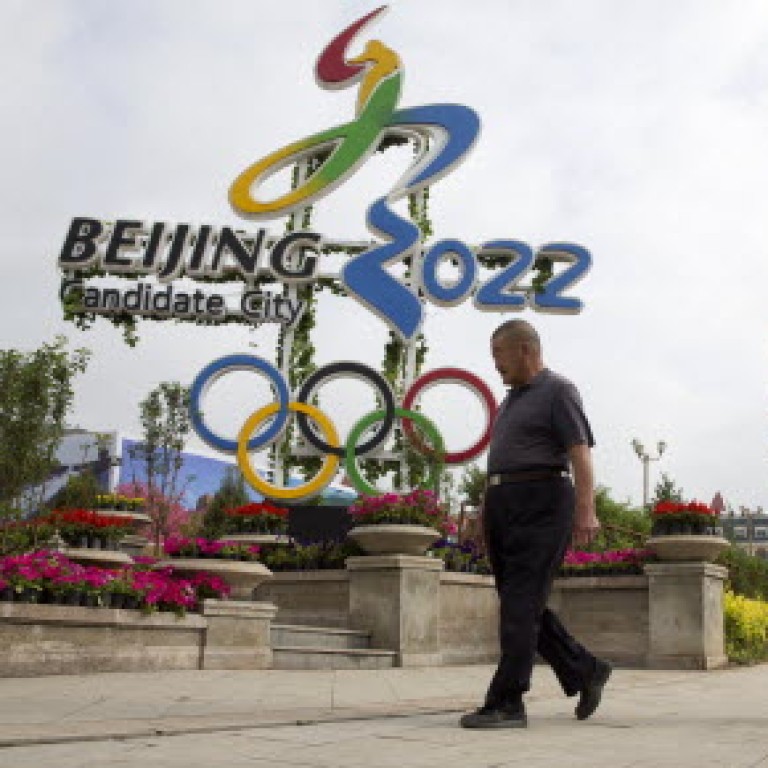
How the Winter Olympics can have a snowball effect on China's economy
G. Bin Zhao says the 2022 Olympics could give China's economy a big shot in the arm if Beijing can spark greater public interest in winter sports
While the clouds of turmoil from the stock market have yet to clear, and China's economy faces the challenge of maintaining its target of 7 per cent growth in the second half of the year, the news that Beijing has landed the 24th Winter Olympics in 2022 is timely.
Although the Winter Olympics aren't as big as the summer Games, the effect on domestic economic and social development is certain to be positive, especially as it will promote winter sports in the country. That, in turn, will boost the growth of sporting events and tourism, enhancing national consumption rates.
So, what influence will the Games have on the economy? Russia's spending of some US$51 billion on the 2014 Sochi Winter Olympics is obviously not a typical case, but Vancouver 2010, with overall operating costs of US$1.45 billion, according to a PricewaterhouseCoopers audit, offers viable comparisons. PwC's assessment showed the Vancouver Winter Olympics created 45,000 local jobs, contributed US$1.75 billion to Canada's GDP and brought in US$351 million in tourism.
For ordinary Chinese, many Winter Olympic events are relatively new, mainly because there is little opportunity to participate in such events
Beijing's official data shows total investment in the 2022 Games will be about US$3 billion, with an operating budget of US$1.56 billion. Government subsidies will account for 6 per cent, the International Olympic Committee will give US$338 million as funding, and other expenses will be covered by money from sponsors, ticket sales, and brand authorisations.
Some estimates say the Winter Games may create up to US$46 billion in revenue, but that figure is hard to verify. Yet, clearly, if the Games really can encourage 300 million Chinese people to participate in winter sports - one of Beijing's goals - then its contribution to the overall economy in the future will be far more than that.
For ordinary Chinese, many Winter Olympic events are relatively new, mainly because there is little opportunity to participate in such events. So, this may be more of an opportunity for middle- and high-income groups to get more interested in winter sports. If participation in these sports proves as popular as in advanced economies, their influence will be considerable. Zhangjiakou , in Hebei province, and Yanqing county in northwest Beijing municipality - sites of some of the events - will see huge development prospects, with a major benefit for leisure tourism.
As China's economy develops, it can host other world-class sporting events. Shanghai, with other Yangtze River Delta cities, as well as Hong Kong and Pearl River Delta cities, could jointly apply to host the soccer World Cup or future Olympics, for example.

